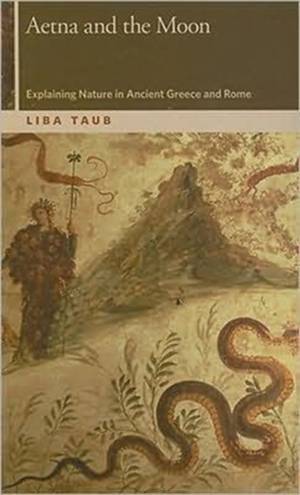
- Retrait gratuit dans votre magasin Club
- 7.000.000 titres dans notre catalogue
- Payer en toute sécurité
- Toujours un magasin près de chez vous
- Retrait gratuit dans votre magasin Club
- 7.000.0000 titres dans notre catalogue
- Payer en toute sécurité
- Toujours un magasin près de chez vous
Description
Classical authors used both prose and poetry to explore and explain the natural world. In Aetna and the Moon, Liba Taub examines the variety of ways in which ancient Greeks and Romans conveyed scientific information. Oregon State University Press is proud to present this inaugural volume in the Horning Visiting Scholars Series. In ancient Greece and Rome, most of the technical literature on scientific, mathematical, technological, and medical subjects was written in prose, as it is today. However, Greek and Roman poets produced a significant number of widely read poems that dealt with scientific topics. Why would an author choose poetry to explain the natural world? This question is complicated by claims made, since antiquity, that the growth of rational explanation involved the abandonment of poetry and the rejection of myth in favor of science. Taub uses two texts to explore how scientific ideas were disseminated in the ancient world. The anonymous author of the Latin Aetna poem explained the science behind the volcano Etna with poetry. The Greek author Plutarch juxtaposed scientific and mythic explanations in his dialogue On the Face on the Moon. Both texts provide a lens through which Taub considers the nature of scientific communication in ancient Greece and Rome. General readers will appreciate Taubs thoughtful discussion concerning the choices available to ancient authors to convey their ideas about scienceas important today as it was in antiquitywhile Taubs careful research and lively writing will engage classicists as well as historians of science.
Spécifications
Parties prenantes
- Auteur(s) :
- Editeur:
Contenu
- Nombre de pages :
- 138
- Langue:
- Anglais
- Collection :
Caractéristiques
- EAN:
- 9780870711961
- Date de parution :
- 15-04-08
- Format:
- Livre relié
- Format numérique:
- Genaaid
- Dimensions :
- 147 mm x 231 mm
- Poids :
- 353 g

Les avis
Nous publions uniquement les avis qui respectent les conditions requises. Consultez nos conditions pour les avis.






